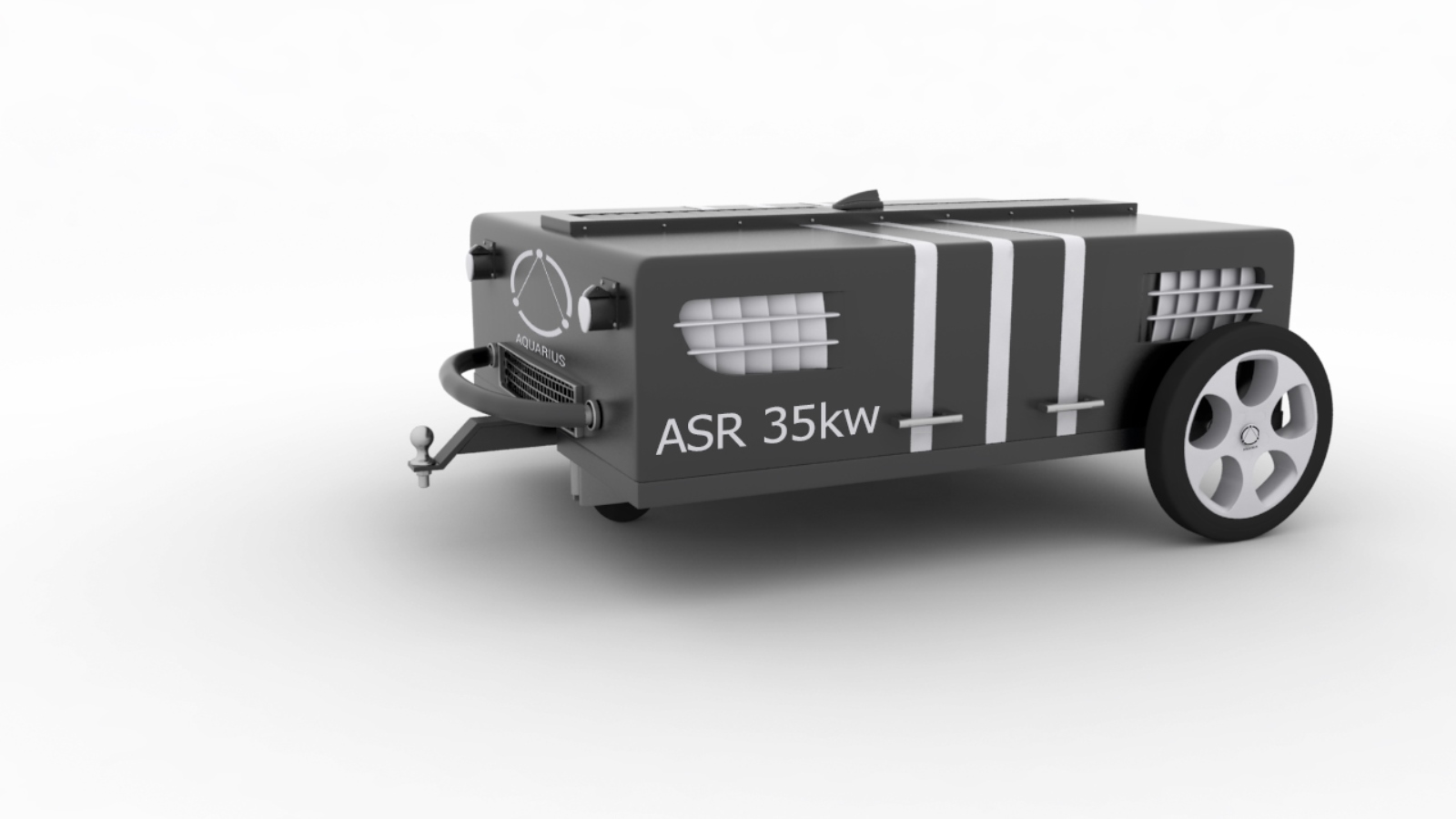Aquarius Engines, the Israeli company that’s working on a revolutionary alternative to the combustion engine for cars, is packaging the same technology into an exceptionally lightweight and efficient portable generator.
It won’t be ready in time to help some 6.5 million Floridians left in the dark by Hurricane Irma, or the Caribbean islands now being hit by Hurricane Maria, but if all goes smoothly the Aquarius generator could be on hardware store shelves ahead of the next wave of massive power losses caused by extreme weather.
“Our very small compact engine gives as much energy as a huge engine to power an electric motor. We are using that same engine to build a small generator that will be equal to a bigger one in terms of energy supply,” Aquarius chairman and cofounder Gal Fridman tells ISRAEL21c.
For the sake of comparison: While a typical “portable” household generator weighs 570 kilograms (1,256 pounds) and provides 24 kilowatts of power, the Aquarius generator weighs about 100kg (220 pounds) and gives off 35kw – enough for two average private homes.
This feat is made possible by the unusual design invented by Shaul Yaakoby. He replaced the constantly revolving combustion engine with a single-piston linear engine. A cylinder moves the fuel from side to side to generate electrical current, much like sea waves can do through an up-and-down movement. The Aquarius car engine weighs only 10.5kg (23 pounds).
“It’s the same technology, just a different package,” says Fridman. “Our engine has always been a generator that uses fuel to create electricity without rotating. That saves a lot of energy wasted in a regular engine and eliminates the need for a crankshaft and valves.”

Aquarius is optimizing its generator prototype for mass production and is seeking manufacturing partners to produce the first 100,000 generators.
On the strength of the demonstration unit alone, the company has signed preliminary contracts with several energy companies, mainly in Canada and Australia because of the difficulties in transferring electricity from where it is produced to the more remote areas of these large countries.
“The electricity chain of supply is changing today,” explains Fridman. “There used to be a central station that distributed the power everywhere. Today you have small stations, some operated by wind or sun and backed up by generators. For places like that, a very small, light and efficient generator is a must and our technology has a lot of advantages.”
The small size of the Aquarius generator would enable it to be carried home by two people in an SUV or pickup truck, rather than a team of workers in a delivery truck. And though most homeowners don’t have storage space for a large generator, the smaller one could be stored in an attic or basement.
“This is our unique selling point for domestic, light commercial energy supply,” says Fridman.
The company is based in Rosh Ha’ayin and also has a branch in Germany for R&D purposes, given that Germany is the engine center of Europe. Aquarius has raised $17 million since its founding in 2014.
“In a couple of months, after we have signed contracts with energy companies and car manufacturers, we’ll get to our B round in a much higher valuation,” says Fridman.
For more information, click here.

















